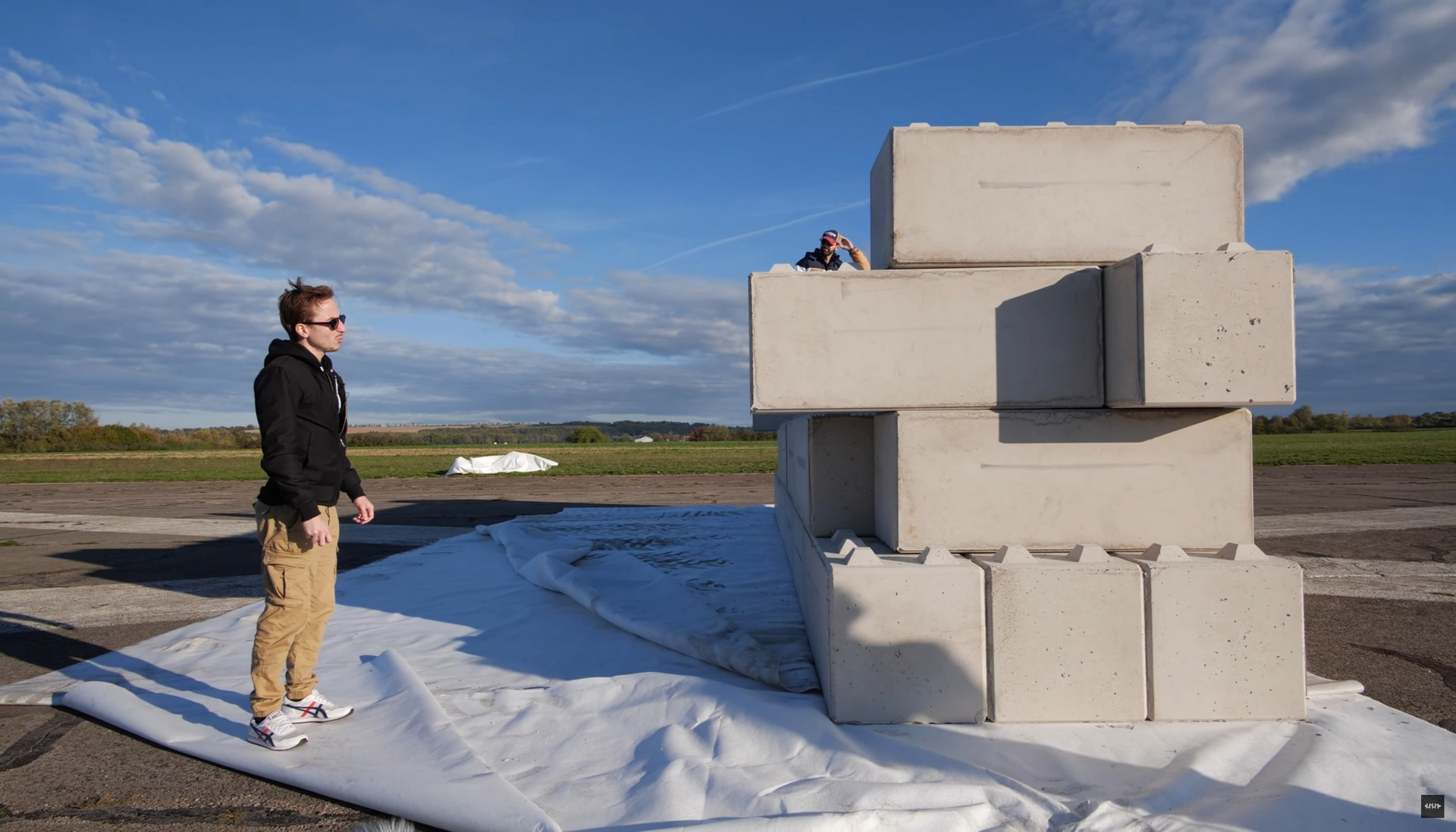- Quick Look at the 2020 Volkswagen Atlas Cross Sport | MotorTrend - March 13, 2024
- BMW Design – 2009 BMW Z4 – 2009 Detroit Auto Show - March 11, 2024
- Top 10 Car Features Women Love - October 7, 2023
When scientists around the world perform crash tests on vehicles, and you see them compress and break, they’re usually going much slower than you think. The IIHS, for instance, does frontal crash tests at 40 mph (64 km/h). So what would happen if you went a whole lot faster?
French YouTube channel Vilebrequin (French for crankshaft) decided to find out. They wanted to know what would happen if you ran into a wall on a highway while vastly exceeding the speed limit.
That actually proved quite difficult to do, as it turns out that France’s road designers take great pains not to put big walls on highways. So they rented an airfield and assembled 72 concrete blocks to form a wall they figure weighs around 86 tonnes.
Read: Porsche Taycan Scoops Up And Crashes Macan Into A Brick Wall
Into it, they planned to drive a BMW 5-Series wagon. Before you go worrying that they destroyed something good, you should know three things. First, it’s a diesel. Second, they bought it (among other reasons) because it had 284,000 km (176,469 miles) on the odometer.
Third, when they tried to clear fault codes, they discovered that the odometer was lying. In fact, this car had driven more than 650,000 km (403,891 miles) since it left the factory. The hosts report that they tried to strip the car to find any parts that could be useful for someone else before conducting their experiment, but couldn’t find a single, solitary item that was worth keeping.
And so, they took out the front seat, installed a remote controlled driving system, put a camera about where the driver’s head would be, and connected it to a VR headset. With that, they hired a chase car, and tried to drive the 5-Series wagon into the wall as fast as possible.
Although they were shooting for a speed of 200 km/h (124 mph), they wound up only being able to achieve a speed of around 150 km/h (93 mph). While that’s not as fast as originally intended, it means that the car was traveling at a speed that I don’t doubt most of the people reading this have achieved at one point or another in their lives.
That makes this test and the remarkable destruction of the car all the more sobering. It’s a brilliant reminder of the dangers that come with speed.

